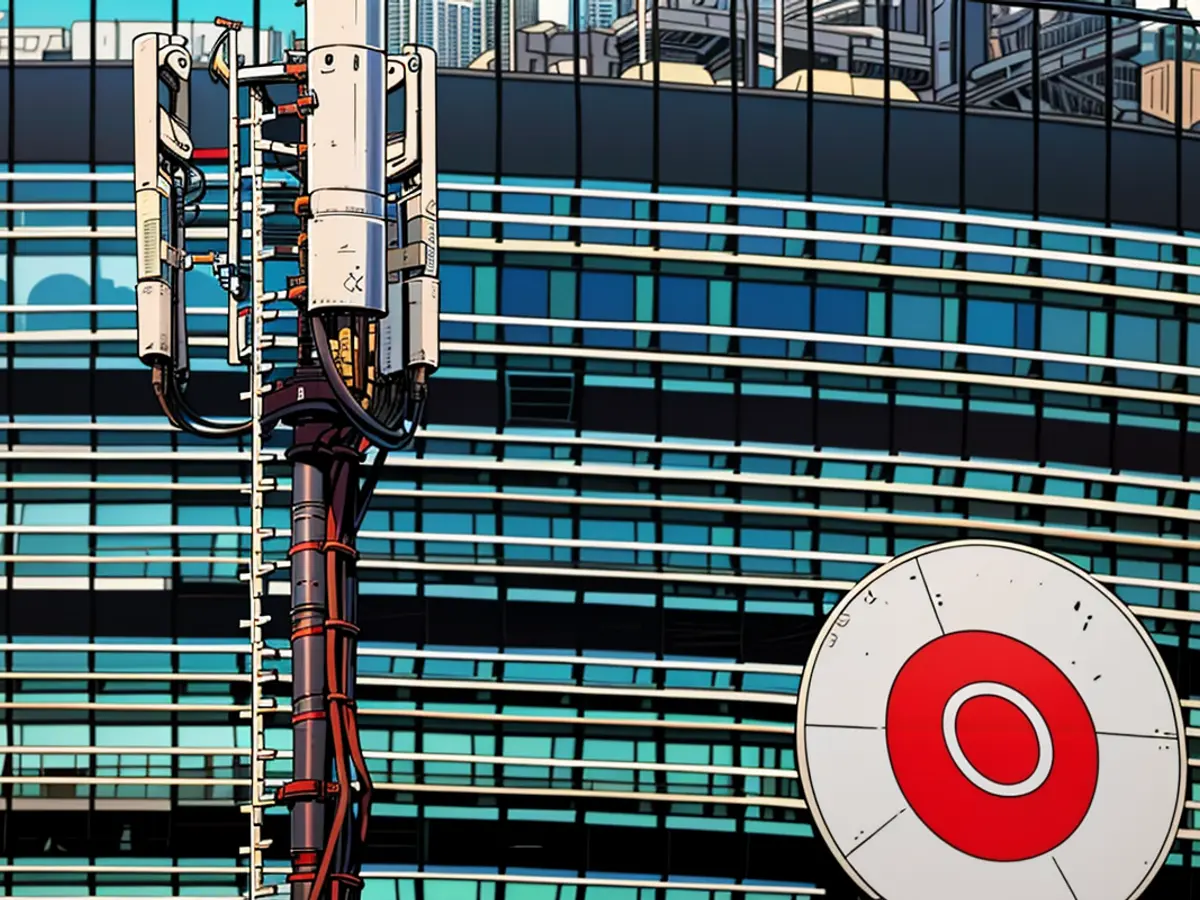Communication Systems - Vodafone strives to enhance its 5G mobile network, as competitors lead the way.
Vodafone, a telecommunications company, intends to broaden its 5G mobile network coverage in Germany in the near future. Presently, approximately 92% of homes in Germany are within the reach of Vodafone's 5G antennas, and by March 2025, this percentage is projected to rise to 95%, as announced by Vodafone Germany's CEO, Marcel de Groot. Not only that, but they are simultaneously improving their existing mobile stations with extra capacities.
This expansion is happening in preparation for a customer migration from competing provider 1&1. Currently, 1&1 has limited antennas of its own, and its patrons are connected to the O2 network in areas where 1&1 doesn't operate. Starting in the summer, 1&1 will shift to "national roaming" with Vodafone, and there will be a gradual transfer of around 12 million 1&1 users to the Vodafone network. This transition will result in rental income for Vodafone and a boost in network usage, with the company currently possessing approximately 31 million mobile phone customers in Germany.
In relation to 5G network expansion, competitors Deutsche Telekom and Telefónica O2 are also making strides, with Deutsche Telekom covering 96% of households and Telefónica O2 at 95%. Both companies are targeting almost full coverage by the end of 2025.
The auction of mobile frequencies was initially scheduled for this year, but the Federal Network Agency has chosen to extend usage rights for five years at a time. As compensation, the businesses must commit to a major network extension by 2030. They should cover 99.5% of Germany's region with a minimum speed of 50 megabits per second.
According to Vodafone Germany's CEO, de Groot, the new approach of the Network Agency - specifically, discontinuing the auction - "is absolutely favorable for mobile phone users in Germany" because the network operators would have more capital for the expansion. "Each euro invested in masts instead of license fees is a well-spent euro," said the executive.
The proposed coverage objectives can only be realized, however, "if politics expedites the mobile phone expansion throughout Germany by making it a legal priority," asserts de Groot. "And it's obvious: If the dismantling of mobile phone antennas across the nation is ordered, the proposed coverage targets cannot be met." He refers to debates in German politics about removing Chinese parts from the German antenna network. This would create difficulties for the three leading mobile network operators - Deutsche Telekom, Vodafone, and Telefónica O2 - since they all rely on the Chinese supplier Huawei for their antenna networks, valuing it for its high quality.
Read also:
Vodafone, being a telecommunications provider in Germany, is looking to enhance its 5G network coverage, aiming to reach 95% of households by March 2025, as highlighted by Vodafone Germany's CEO, Marcel de Groot. This expansion is in response to the anticipated migration of customers from competing provider 1&1, who currently rely on O2's network in areas where 1&1 lacks its own antennas.
Following this shift, 1&1 customers, estimated to be around 12 million, will gradually move to Vodafone's network, boosting the company's network usage and increasing its total mobile phone customers in Germany to approximately 43 million. Meanwhile, other telecommunications companies in Germany, such as Deutsche Telekom and Telefónica O2, are also expanding their 5G networks, with the aim of covering almost every household by the end of 2025.
The Federal Network Agency initially planned to hold an auction for mobile frequencies this year, but decided to extend usage rights for five years at a time, with the condition that the companies commit to a significant network expansion by 2030, covering 99.5% of Germany with a minimum speed of 50 megabits per second. Vodafone Germany's CEO, de Groot, view this extended licensing period as beneficial for mobile phone users, as it provides more capital for network expansion.
However, de Groot emphasized that the proposed coverage objectives can only be achieved if the German government prioritizes mobile phone network expansion at a legislative level. He also raised concerns about potential policy decisions that could impact the use of Chinese components in mobile antenna networks, as many German operators rely on providers like Huawei for their infrastructure.
In addition to 5G expansion, the German market also has other notable telecommunications players, such as 1&1 Internet, which is currently a subsidiary of United Internet AG, a German internet service provider based in Dortmund, North Rhine-Westphalia. United Internet is also a major player in the German telecommunications market.








